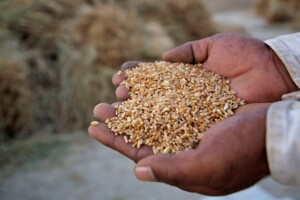Blog Posts
Aiming for nutrition sovereignty in a post-ODA era
March 24, 2025
WP_Term Object
(
[term_id] => 136
[name] => Blog Posts
[slug] => all-blog-posts
[term_group] => 0
[term_taxonomy_id] => 136
[taxonomy] => news-category
[description] => See what’s top of mind for our technical experts as they share the latest on cutting-edge nutrition research, policy updates, and implementation guidance.
[parent] => 2025
[count] => 137
[filter] => raw
)
Fortifying food for a healthier, more resilient future
While the immediate threat of COVID-19 is present, the looming nutrition crisis has the potential to cause even more devastation.
Posted on May 27, 2020

The world is currently facing an unprecedented health crisis. The COVID-19 pandemic threatens the lives of millions of people around the world, with disruptions and emergency conditions threatening millions more. While the immediate threat of COVID-19 is present, the looming nutrition crisis has the potential to cause even more devastation.
Most countries have taken extraordinary measures to contain the spread of COVID-19, including nationwide lockdowns and diverting resources towards prevention and treatment. While these steps are necessary to slow the spread of the coronavirus, they have caused supply chain disruptions and are leading to reduced purchasing power in low- and middle-income countries where nutritious food and basic health services will become even more difficult to access.
To address these challenges, governments around the world are putting together COVID-19 response plans, many of which include provisions for food rations for the most vulnerable segments of their populations. Yet many of these plans do not necessarily take nutrition outcomes into account, as the main goal is targeting hunger and mitigating the economic impact of the pandemic on the poor and the vulnerable. Potential reduced focus on nutrition leaves a critical gap in the immediate response as well as longer term efforts, and jeopardizes hard-earned gains in health, education, employment and poverty reduction made over the past decades.
A country’s health system is built on the immune systems of its people. Good nutrition is the foundation of a strong immune system and, as the pandemic has starkly revealed the underlying vulnerabilities and inequities of our world, the urgent need for improved nutrition has become apparent.
Fortifying staple foods with critical micronutrients is an important part of the solution. Staple food fortification is ranked by the Copenhagen Consensus 2012 as one of the highest-return investments in global development. Fortification programs implemented population-wide have been associated with a 24% reduction in anaemia in women and a 46% reduced risk of neural tube defects. In the context of the pandemic, when the vast majority of countries around the world have introduced strict physical distancing measures, food fortification can reach large swaths of the population without the need for direct contact.
While many food system supply chains have seen disruptions, the production of staple foods has thus far continued mostly unimpeded. Fortifying these foods can ensure that micronutrient-rich foods are widely available across populations. At this time, when people across the world are stretching their budgets and may not be able to afford a healthy and nutritious diet, fortification is one of the most critical nutrition interventions.
Governments must integrate nutrition into their COVID-19 response plans and food fortification should play an integral role. Fortified staple foods should be available through social protection programs, and across all markets. This means working with and incentivizing the industry to produce and distribute adequately fortified food and supporting consumers to make healthy choices and understand the benefits of consuming fortified food. Donors can provide support by committing new, or additional, resources to the COVID-19 response.
To guarantee continuity, supply chains must remain uninterrupted. Food staples, premix used to fortify, and other necessary commodities should be considered essential products, exempt from duties and taxes, and free to move across borders and ports. Governments should work to strengthen their supply chains to guard against a second wave of the virus, or in the event that infection rates worsen elsewhere and cause disruptions in delivery.
Nutrition International and our partner organizations will continue to engage with industry partners to share global best practices and understand their challenges, including illness-related labour shortages and quarantine measures limiting access to markets. Sustained advocacy with national and sub-national governments is also key to keeping fortification high on their agenda and will help to ensure those most at risk of malnutrition are reached, both during and after the pandemic.
Nutrition International is also supporting the production and distribution of fortified foods. We are currently working with millers, partners and governments to ensure that food fortification programs can continue despite global pandemic restrictions. Using mobile technology, we are providing technical and operational support to millers so they can continue to fortify salt, flour and other staples.
As governments around the world face this immediate and exceptional crisis, nutrition must play an integral role as we work to build back better. Food fortification presents a major opportunity to reach entire populations with much-needed micronutrients that improve health and strengthen immune systems. Investing in nutrition is a vital first step in securing a future that is healthier, safer and more resilient for all.